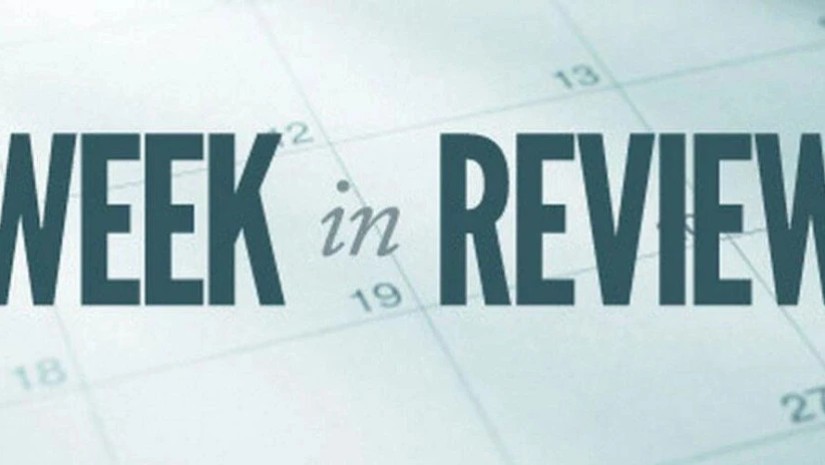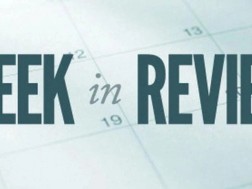Russia started withdrawing peacekeepers from Karabakh. Armenian troops did not take part in the Russian-led Collective Security Treaty Organization's. By a vote of 60 to 22 the National Assembly of Armenia has ratified the Rome Statute to join the International Criminal Court on October 3. Earlier, Russia warned that Armenia's ratification of the Rome Statute of the ICC would have the most negative consequences for bilateral relations. On the day of ratification, trucks exporting Armenian brandy to Russia got stuck at Upper Lars border crossing waiting for Russia’s permission to enter the country. Turkey’s consumer prices rose 61.5% over 12 months ending in September, up from 58.94% in August. Private Russian oil producer Lukoil will lend Azeri state oil firm Socar $1.5 billion as part of a broader deal.
Here is a rundown of the latest political, economic and business developments around Georgia's neighboring Armenia, Turkey and Azerbaijan during the last week.
Armenia
By a vote of 60 to 22 the National Assembly of Armenia on October 3 has ratified the Rome Statute to join the International Criminal Court. Earlier, the Russian Foreign Ministry said that Armenia's ratification of the Rome Statute of the International Criminal Court (ICC) would have the most negative consequences for bilateral relations.
From October 3, about 60 trucks with Armenia-made cognac were waiting at the Upper Lars checkpoint on the Georgian-Russian border for permission to enter the Russian Federation. The line has emerged from October 3, the day when Armenia ratified the Rome Statute, which earlier Russia warned, would have the most negative consequences for bilateral relations. On October 5, after days of waiting, several dozens of Armenian trucks with alcohol products have gone through the Upper Lars checkpoint on the Georgian-Russian border.
Russia announced that its peacekeepers finished dismantling the observation posts in Karabakh following Azerbaijan's recent operation against Armenian separatists last month. "The dismantling of the temporary observation posts along the former line of contact between the parties in the Askeran, Mardakert and Shusha districts has been completed," the Russian Defense Ministry said in a statement on Thursday.
Armenian troops were not taking part in the Russian-led Collective Security Treaty Organization's (CSTO) one-week military maneuvers that kicked off near Kyrgyzstan's northern town of Balykchy on October 6.
Senior Russian, United States and European Union diplomats met in secret on the eve of Azerbaijan’s lightning campaign to retake the disputed enclave of Nagorno-Karabakh, the Kremlin confirmed Wednesday. Politico Europe reported Wednesday that U.S.-EU-Russia talks on pressuring Baku to end its nine-month blockade of Karabakh took place on Sept. 17 in Istanbul. Such meetings have become rare in the 19 months since Russia invaded Ukraine and fell under Western sanctions and diplomatic isolation.
Azerbaijan has detained Nagorno-Karabakh ex-presidents Arkady Ghukasyan, Bako Sahakyan, Arayik Harutyunyan and National Assembly speaker David Ishkhanyan. Earlier it detained former State Minister Ruben Vardanyan, former Deputy Commander of the Armed Forces David Manukyan, former Commander of the Defense Army Levon Mnatsakanyan and former Foreign Minister David Babayan.
The European Union will provide more than €25 million in aid to Armenia to address the basic needs of tens of thousands of refugees from Nagorno-Karabakh. The news was announced by European Commission head Ursula von der Leyen upon her arrival at the European Political Community summit in Granada, Spain.
The Japanese government has decided to provide a $2 million grant to help the people forcibly displaced from Nagorno-Karabakh, the country's Foreign Ministry said in a statement.The funds will be transferred through the International Committee of the Red Cross and the UN High Commissioner for Refugees. The Japanese government grant will be used to purchase non-food items, medicines and water supplies.
The Armenian government at a meeting on Thursday gave a green light to signing a 9 million euro agreement with the European Union as part of the second phase of the judiciary reform program. "The funding will be used to achieve international standards in the spheres of judicial proceedings and fighting corruption," Deputy Justice Minister Armenuhi Harutyunyan said. She noted that the program is also aimed at bringing criminal proceedings in line with European standards, including gender issues. Another 2 million euros are expected for the final stage of the program.
Armenia's foreign trade in January-August 2023 soared by 53% year-on-year to about $12 billion, according to the numbers released by the National Statistical Committee (NSC). In 2023 August alone the foreign trade amounted to over $1.6 billion, 10% up from August 2022 and up 8.7% from July 2023. Armenia's largest foreign trade partners among former Soviet republics were Russia (over $4.1 billion, up 56.3% compared to the first eight months of 2022), Belarus ($136.6 million, up 27.1%) and Ukraine ($61.5 million, up 18.1%).
About 6 billion kWh of electricity was generated in eight months of 2023 in Armenia, up from over 5.8 billion kWh produced in the same period of 2022. Thermal power plants accounted for the largest share of generated electricity - 53% or over 2.6 billion kWh, an increase of 6% year-on-year. The share of hydropower plants dropped by almost 16% to 23.3% or about 1.3 bln kWh. The nuclear power plant produced almost 11% less year-on-year - over 1.5 bln kWh. Its share of the total was 15.4%. Solar power plants share was 5.3%.They produced 538 million kWh of electricity in the reporting period, up from 157.6 million kWh in the same period last year, while wind power plants (share - 0.02%) produced 1.3 million kWh (up 5.4%). From 2023, the overall electricity generation also include part of electricity generated by autonomous power producers that was trasmitted to the overall power grid.
Petrol prices in Armenia rose by 0.4% in September 2023 compared to September 2022, while diesel fuel went down in price by 17.4%. Petrol prices in September 2023 were up 5.8% compared to August of the same year, while diesel fuel prices were up 6.9%. Petrol price in September 2023 was up 18.1%, when compared to December last year, and diesel prices were down 6.2%.
Armenia's industrial output in the first eight months of 2023 amounted to over 1.6 trillion drams in current prices, down 0.1% compared to the same months of 2022. The industrial output in August alone amounted to about 231 billion drams, down 3.7% from August 2022 and a 8.1% rise from July 2023.
Türkiye
Türkiye's annual inflation held steady at around 60% in September, official data showed, marking the first evidence that the government's policy overhaul aimed primarily at containing price surges was working. Consumer prices rose 61.5% over 12 months ending in September, the Turkish Statistical Institute (TurkStat) said, below forecasts and up from 58.94% in August. The reading still marks the highest level this year, following an easing trend before prices began to surge due to a decline in the Turkish lira and several tax hikes that came amid a shift in the country's monetary policy. The month-over-month increase in prices slowed to nearly 4.8% in September, the institute said, compared to 9.1% in August and 9.5% in July. The rise was spearheaded by a 30.3% monthly jump in the cost of education in the new school year. But the price of items such as clothing only rose by 2.6% in the month.
The World Bank upgraded Türkiye's economic growth forecast for this year, citing domestic demand and reduced policy uncertainty following the May elections as the main driver behind its revised outlook. The bank, in its report prepared for the Europe and Central Asia (ECA) region, said the Turkish economy is expected to expand by 4.2%, up from its previous projection of 3.2%.World Bank on Thursday upgraded Türkiye's economic growth forecast for this year, citing domestic demand and reduced policy uncertainty following the May elections as the main driver behind its revised outlook. The bank, in its report prepared for the Europe and Central Asia (ECA) region, said the Turkish economy is expected to expand by 4.2%, up from its previous projection of 3.2%.
The United Nations Conference on Trade and Development (UNCTAD) revised Türkiye's economic growth forecast for this year raising it to 3.7% from 2.6%. "The country was hit hard by high energy prices in 2022 but retained strong domestic demand throughout the first half of 2023 thanks to strong fiscal support, an effective program of transfers to households, and a 10-point cut of the policy interest rate," it said in its Trade and Development Report. "However, while the latter provided stimulus to domestic demand, it placed pressure on the currency," it added, noting that Türkiye's economy is expected to grow 1.9% in 2024.
US-based credit ratings agency Standard & Poor's (S&P) on Friday affirmed Türkiye's credit rating at B and revised its outlook from "negative" to "stable." The agency said the stable outlook reflects "balanced risks" on Türkiye's creditworthiness after a return to orthodox monetary policy settings as the Central Bank raises interest rates."In an effort to disinflate and de-dollarize the economy, the Central Bank, under new leadership, has raised the key one-week repo rate by 21.5 percentage points since June, to 30%. To offset fiscal deterioration, the Treasury has introduced indirect taxes," the global rating agency said in a statement.
The U.S. e-commerce giant Amazon officially opened Wednesday its first logistics center in Türkiye in the Tuzla region, located on the Asian side of Istanbul. Launched through an investment of over $100 million (TL 2.75 billion), according to the company’s previous statement, the center, which started operating in September 2022 has created hundreds of new employment opportunities since then, while making significant contributions to small and medium enterprises (SMEs) in Türkiye to grow their businesses and meet increasing customer demand.
Sales of cars in Türkiye hit another all-time high in September, adding to the peaks since the beginning of the year, according to industry data that also showed electric vehicle (EV) purchases maintaining an unprecedented trend. A record 96,793 passenger cars and light commercial vehicles exchanged hands last month, the Automotive Distributors and Mobility Association (ODMD) said in a statement, marking a 55.9% year-over-year increase. Car sales in September surged by 76.7%, totaling 78,971 units, the data showed, while the market for light commercial vehicles saw a more modest increase of 2.4%, with sales reaching 17,822 units. Demand soared as depreciation in the Turkish lira and soaring prices prompted consumers to continue to opt for cars they see as a tool to safeguard themselves from high inflation. The boost last month resulted in the overall automobile and light commercial vehicle market surpassing the average September sales of the past decade by 58.1%. From January to September, the combined sales reached a fresh record of 857,575 units, marking a year-over-year growth of 64.8%. The figure surpasses the whole of 2022, when some 783,283 cars and light commercial vehicles exchanged hands.
Sabancı Holding, one of Türkiye’s largest conglomerates, is set to broaden its renewables portfolio, as it has announced the acquisition of 100% shares in a solar energy facility and an energy storage facility in the U.S. state of Texas through its wholly-owned subsidiary. Sabancı Renewables Inc., a subsidiary of Sabancı Holding, has acquired 100% of the shares of Oriana Solar LLC, consisting of investments in a 232-megawatt (MW) solar energy facility and a 60-megawatt energy storage facility in the U.S. The solar energy plant to be constructed will be Sabancı's second renewable energy investment in the U.S.
The commissioning of the first reactor of Türkiye’s first nuclear power plant is expected next October, Energy and Natural Resources Minister Alparslan Bayraktar said Thursday, adding that talks on second and third plants are underway.
Türkiye has reached its highest September exports ever, the country's trade minister said, marking the third consecutive monthly record. Exports rose to $22.67 billion, a 0.3% year-over-year increase, Trade Minister Ömer Bolat told a meeting to announce the preliminary figures in the northwestern province of Bursa. Imports declined 14.1% year-over-year to nearly $27.66 billion, the official data suggested. Imports declined 14.1% year-over-year to nearly $27.66 billion, the official data suggested.
Türkiye's purchases of Russian Urals oil shipments in September picked up due to a shortage of sour barrels in the Mediterranean, while India’s share fell down from August amid refinery maintenance. Urals, KEBCO and Siberian Light grade loadings from the ports of Primorsk, Ust-Luga and Novorossiysk in September rose to 2.1 million barrels per day (bpd) from 1.8 million bpd in August.
Azerbaijan
Private Russian oil producer Lukoil will lend Azeri state oil firm Socar $1.5 billion as part of a broader deal that will allow Socar's 200,000-barrel-per-day Turkish STAR refinery to process Russian crude again. The deal will give Lukoil another customer in close proximity to Russian ports after most European refiners stopped importing its crude to comply with European Union sanctions imposed after Moscow launched what it calls a "special military operation" in Ukraine in 2022.
The production of gross domestic product (GDP) in Azerbaijan is expected to increase by 1.5% this year, and by 2.4% in 2024, according to the World Bank’s Regional Economic Outlook. This is, respectively, 0.7 percentage points and 0.1 percentage points lower than the forecasts published in spring 2023. The World Bank predicts that Azerbaijan's economy will grow by 2.5% in 2025.
The inflation rate in Azerbaijan is expected to be 9% this year, and 5.8% in 2024, respectively, up 0.5 percentage points and down 0.4 percentage points from the previous forecasts, according to the World Bank's Regional Economic Outlook. This figure will be 5.2% in 2025, down 0.2 percentage points from the previous forecast.
In January-September of this year, Azerbaijan exported non-oil products worth $2,434.32 million, the Export and Investment Promotion Agency (AZPROMO) said. According to the information, this is an increase of 10.6% year-on-year.
The total value of transactions on all financial instruments of the Baku Stock Exchange (BSE) in January-September 2023 amounted to 15,909,046,000 manats ($9.36 billion), increasing by 73.9% in comparison to the previous year. Over the past year, the number of concluded transactions has increased by 48.5% to 9,217. State securities accounted for 6,179,771,000 manats ($3.63 billion), or 38.8% of the BSE turnover, 25.9% more than a year earlier. The value of transactions in the corporate securities market went up by 37.1% to 1,035,749,000 manats ($0.61 billion) during the reporting period, and repo transactions rose by 2.5 times to 8,693,527,000 manats (about $5.11 billion).






















